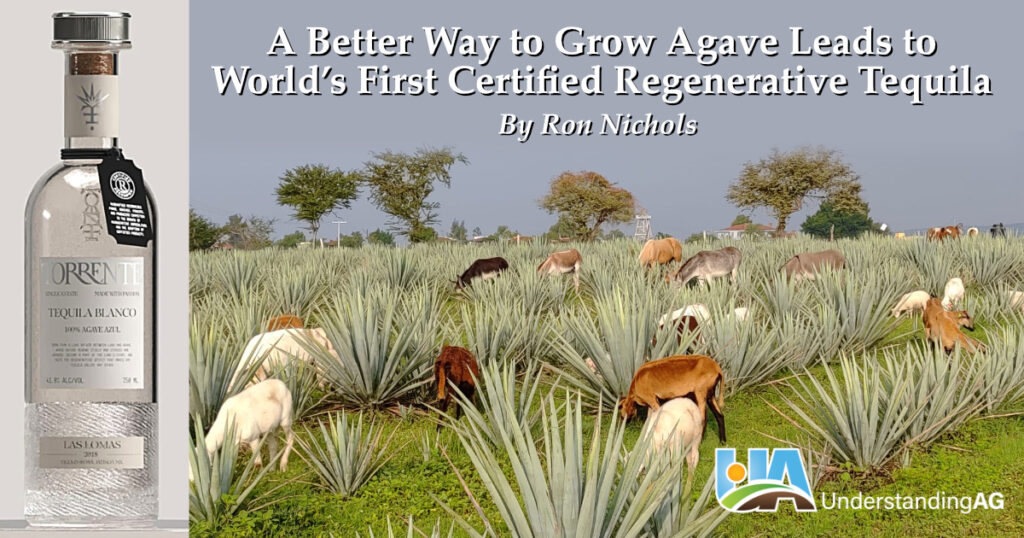- All
- & Specialty Crops
- 6-3-4 Regeneration
- Adaptive Grazing & Livestock
- Crops & Small Grains
- Farm Economics & Finance
- Food & Nutrition
- Gardening
- Orchards
- Orchards, Vineyards, Gardening, & Specialty Crops
- Regenerative Success Stories
- Soil Health & Resource Management
- Vineyards
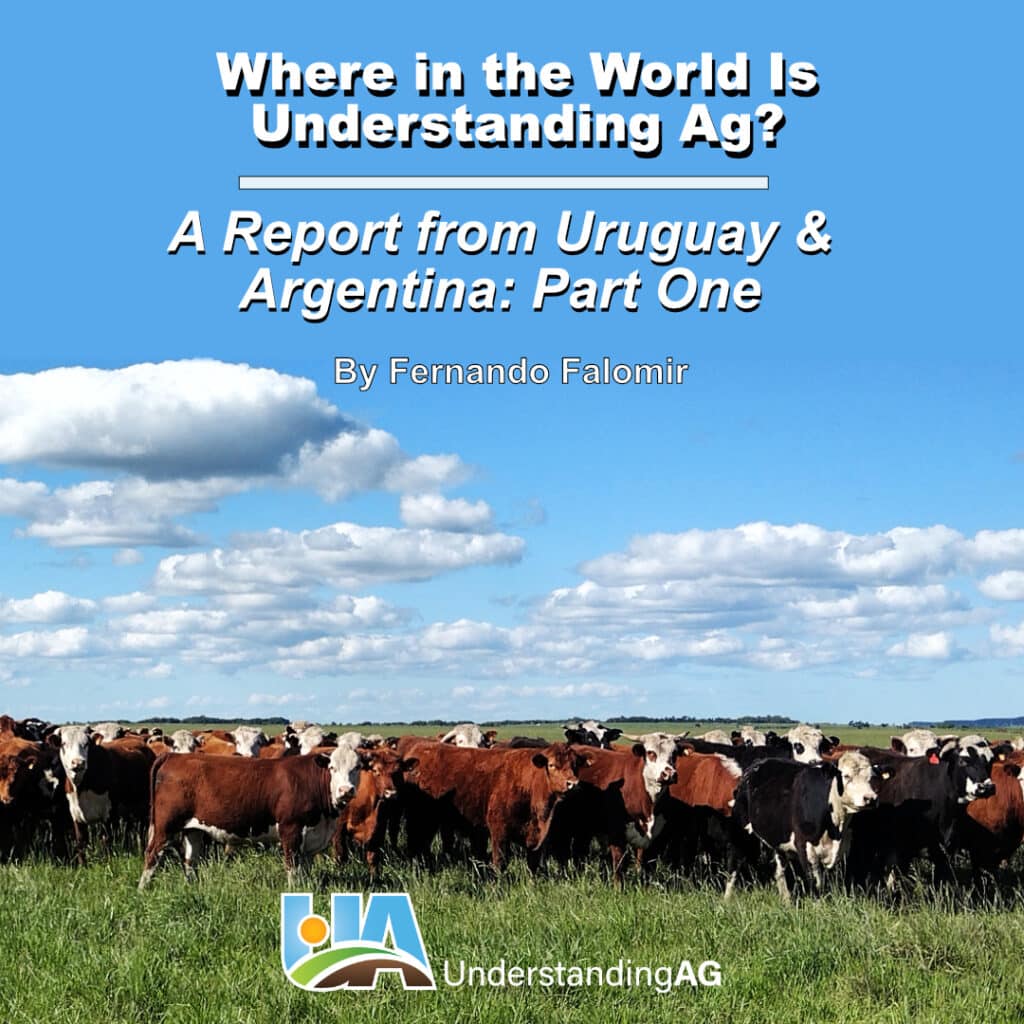
Where in the World is Understanding Ag?
“When I was a young kid, my grandfather had a painting of a Gaucho riding a horse at full gallop chasing down a cow in the Patagonia Steppe. The Gaucho was swinging a set of ‘boleadoras; above his head, which is the traditional tool to help them wrangle cattle. Ever since I first saw that painting, […]
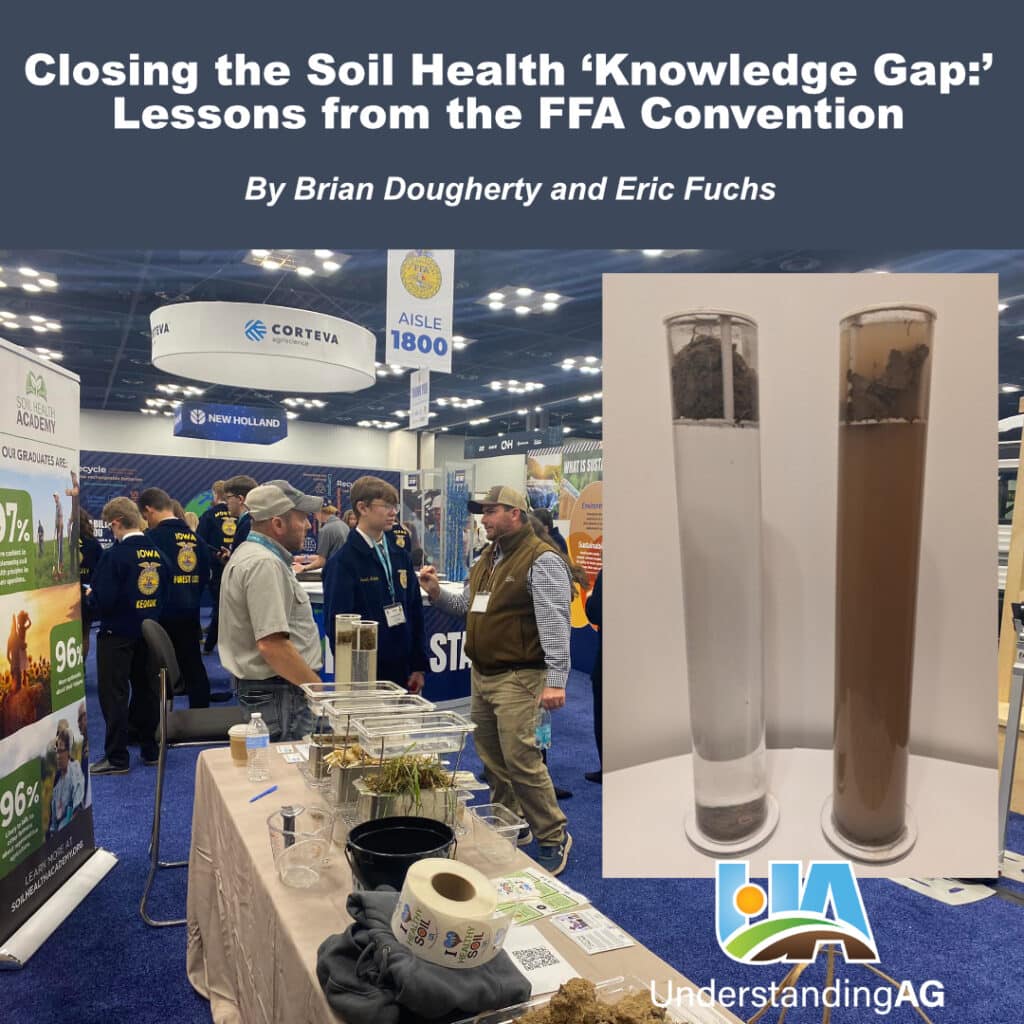
Closing the Soil Health ‘Knowledge Gap:’ Lessons from the FFA Convention
We recently had the privilege of attending the National Future Farmers of America convention in Indianapolis, Indiana to represent Understanding Ag. Mingling with a sea of over 70,000 kids wearing the classic blue and gold FFA jackets with their home states emblazoned across the back is an unforgettable experience. It brought back memories of my […]

Our Broken Water Cycle and What Can We Do About It
“It’s not how much rain you get but how much rain you can keep.” As I write this in late Oct 2024, we have had no measurable rainfall for the entire month here in west-central Indiana. If you look at the August-through-October total rainfall here, we have not been this dry since 2010, and we’ve […]
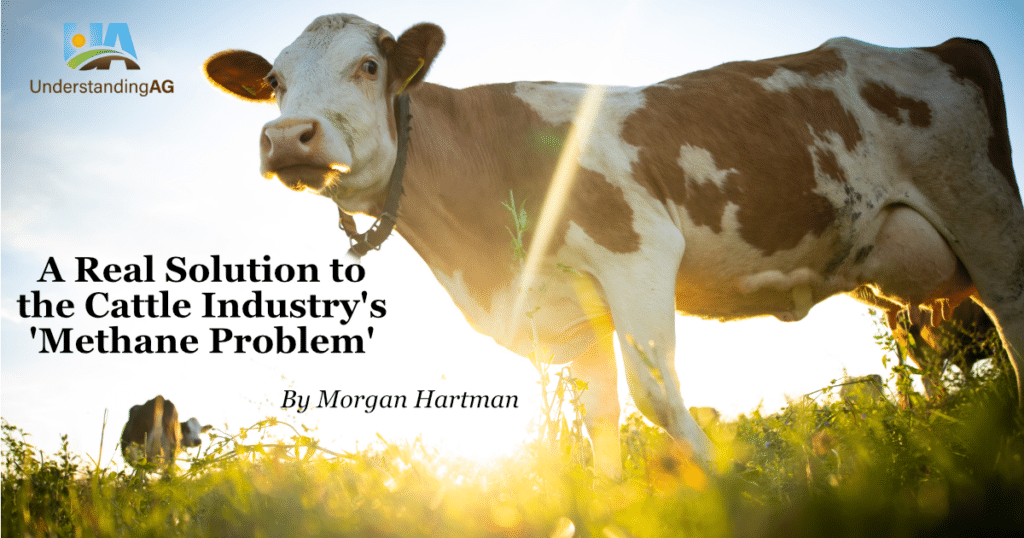
A Real Solution to the Cattle Industry’s ‘Methane Problem’
The headline in The Washington Post article, published August 25, 2024, proclaimed “Scientists may have found a radical solution for making your hamburger less bad for the planet.” The article, written by Shannon Osaka and Emily Wright, examined research currently being conducted at the University of California-Davis using gene editing techniques on rumen microbes to […]

Part 2 Erosion: How Much is it Costing YOU?
In part one, I outlined some of the societal challenges linked to soil erosion and poor soil function. Now let’s take a look at some of the economic costs and benefits of addressing erosion on farms and ranches. To determine the cost of erosion, first we must assign a value to soil. In truth, topsoil […]

Part 1 Erosion: How Much is it Costing US?
Soil erosion has been one of the most persistent challenges humanity has faced since the advent of agriculture over 10,000 years ago. Loss of productive capacity of the supporting land base contributed to the collapse of numerous civilizations during that time. Poor grazing practices and tillage were the main causes of land degradation historically and […]

A Satellite Image Exposes the ‘Bare Facts’ About Conventional Ag
I pulled this image up on GoogleEarth yesterday. The photo below shows an area 12.5 miles wide, by 6.5 miles vertically, much of it in Rock Dell Township, Minnesota where our farm is. Hayfield is in the upper left-hand corner. The green area in the middle is along Hwy 30, and at the top is […]
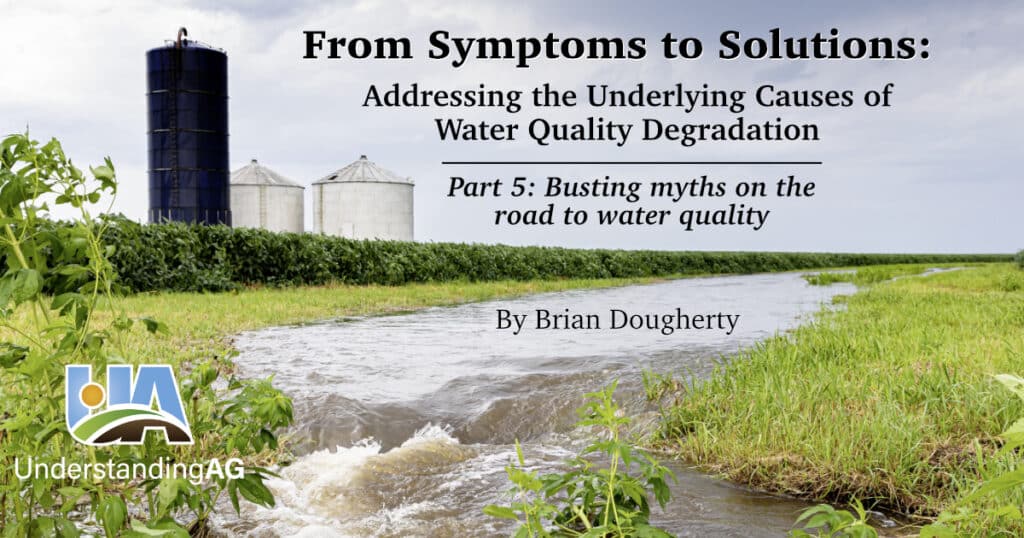
From Symptoms to Solutions: Addressing the Underlying Causes of Water Quality Degradation – Part 5
In Part Four, I discussed the importance of keeping living roots in the soil and avoiding overapplication of nutrients at the wrong time. In this final post I will examine nitrogen sourcing options and how plants acquire nutrients in a healthy soil. To understand what the ‘right source’ of nitrogen is, we first need to […]

Will I Really Benefit from Grazing My Cover Crop?
God designed the world to function as a perpetual motion machine. If done right, it should always be building fertility, not extracting it. But you have to understand the principles of soil health, and the four ecosystem processes, in order to achieve that outcome. While many individuals are content with simply “growing a cover crop” […]
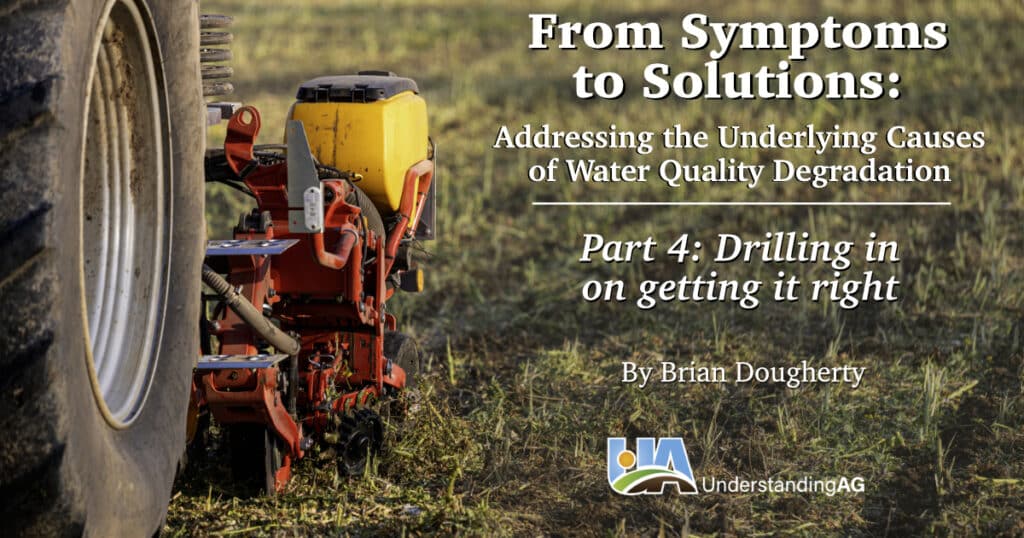
From Symptoms to Solutions: Addressing the Underlying Causes of Water Quality Degradation – Part 4
In Part Three, I reviewed the concept of using marginal nitrogen use efficiency and zero N check strips as tools to evaluate application rates. Now I will shift the focus to problems with overapplication, how to determine the right timing for application, and the consequences of not doing so. The fastest way to diminish the […]
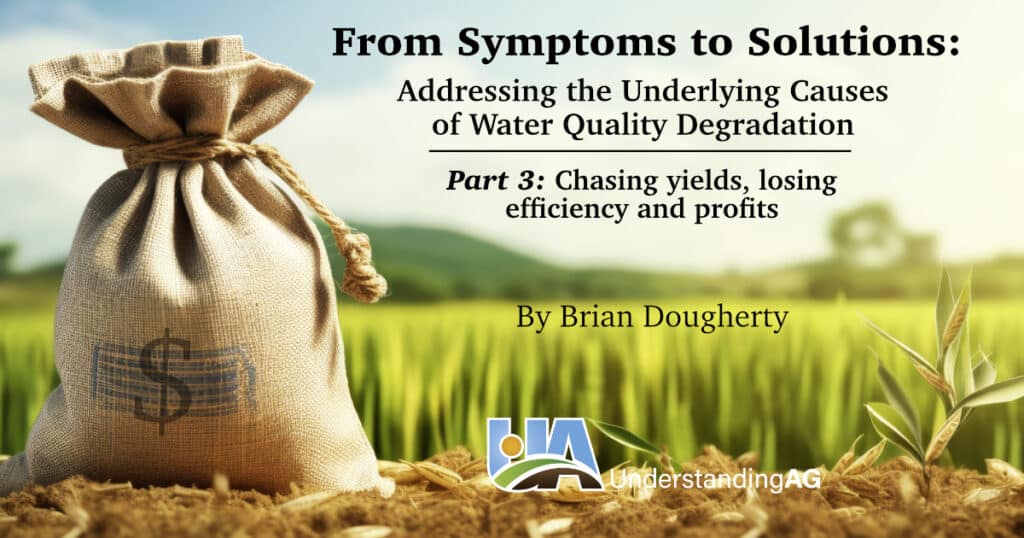
From Symptoms to Solutions: Addressing the Underlying Causes of Water Quality Degradation – Part 3
In business, it all comes down to profit. In farming, profit comes down to things we can’t control like the weather and the markets, and the things we can control like our management decisions. One of those key management decisions is determining how much nitrogen to apply to our crops. In part two of this […]

